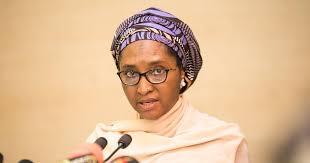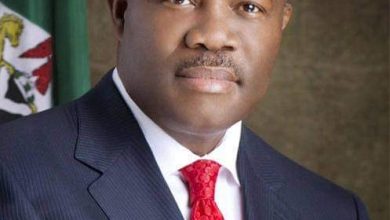China Currency Swap: Still Waiting for a Deal

The N720bn swap deal for at least 15bn Yuan (Renminbi) between Nigeria and China has failed to achieve its purpose three years after the agreement was launched. An equivalent of US$2.4bn in June 2018 using the official rates for the conversion. The Bilateral Currency Swap (BCS) agreement was to allow importers of goods from China to conclude their transactions in Yuan instead of the greenback (US Dollar) and vice-versa. This was done to reduce the demand of the US Dollar, reducing the pressure of the Naira at the time, one of CBN’s many policies in managing the Naira.
Although the Central Bank of Nigeria (CBN) has continued with the implementation of the BCS with the Peoples’ Bank of China through fortnightly (once every two weeks) Renminbi auctions, bureaucracy, and bottlenecks have been major challenges faced by traders and importers carrying out business transactions from China. According to CBN’s Financial Markets Activity Report for Half Year 2020, CNY1,746.40 million has been sold from inception to the end of June 2020, which is N89.12bn using CNY/N51.03 for the conversion (as of June 2020).
How it Started
In April 2018, the CBN and the People’s Bank of China (PBoC) executed a currency swap agreement on behalf of their respective countries. CBN issued the regulations for the US$2.5bn currency swap agreement in June same year, the deal was signed to facilitate trade between the two countries and enhance foreign reserve management.
Before the agreement, the CBN had been in discussions with China on the deal for more than two years. Nigeria is the third African nation (after South Africa and Egypt) to sign a currency swap deal with China. The agreement was to allow the two countries to swap a total of 15bn Yuan (renminbi) for N720bn or vice-versa for three years and would be extended by mutual consent.
The purpose of the BCS as stated by the apex monetary authority were:
- Finance trade and direct investment between the Peoples’ Republic of China and the Federal Government of Nigeria
- Maintain financial market stability and
- For other purposes that both parties may agree upon.
Following the implementation of the initiative, the value of the domestic currency also responded to the news amongst other factors. The Naira was selling at N48.6/CNY in January 2018 before the announcement, it appreciated by 494base points (4.94%) after the deal had been signed and announced. It further appreciated by +8.23% at the end of the year (2018).
In December 2020, the Naira against the Chinese Yuan had depreciated by -30.27% against the gains recorded in 2018, this can be attributed to demand for the Yuan as the US dollar became even more expensive for business transactions, more awareness of the swap deal with China by traders and the adjustment of the Naira by CBN during the period. Although, CBN has not released data showing how much Renminbi has been sold between July 2020 till date (see chart 1 below).
Chart 1: Value of The Naira Against CNY & USD Jan 2018 – 1 Sept 2021
Source: CBN, Proshare Research
Analyst in Proshare expected the Naira to have depreciated further against Yuan, this is because converting directly to the Chinese currency for transactions in China would be cheaper than converting to US Dollar, then converting to the Yuan for importation/trading. However, unnecessary delays, bureaucracy, and corporate bottlenecks in accessing the Renminbi have been the experience for most traders involved in business transactions with Chinese firms (see illustration 1 below).
Illustration 1: Nigeria’s Currency Swap Deal with China
Nigeria/China Trade; Thinking of Something New
In 2018, imports from China accounted for 25.12% of total imports to the country, while China was not part of the top ten (10) export destinations of Nigerian products. There was a decline in 2019 to 20.49%, which was defied analyst expectation, as goods from China were expected to be cheaper following the currency swap deal, thereby increasing our imports from the country.
There was a rebound in 2020 which continued in Q1 2021, accounting for 29.34% of total imports to Nigeria. Our export position with Nigeria has also increased, accounting for 4.91% and 6.5% of total export in 2020 and Q1 2021 respectively (see chart 2 below).
Chart 2: Nigeria’s Trade with China as A Percentage of Total Import and Export 2018 – Q1 2021
Source: CBN, Proshare Research
The swap deal had the potential of improving the FX position of the country as China accounts for a large portion of our imports. However, implementation has always been a huge hurdle for the Nigerian government, and this policy has not proved to be an exception, another failed policy.
The target of N720bn to 15bn Renminbi to be swapped in three years has not been met, traders and importers still have to US dollars, then the Yuan for business transactions with Chinese firms, which is expensive leading to a constant hike in the prices of commodities imported from China, as the cost of operations is passed to the final consumers trickling down to rise in inflation. Also, the value of the Naira against the US dollar is still depreciating (selling at N528/USD at the BDC market as of 2 September 2021).






